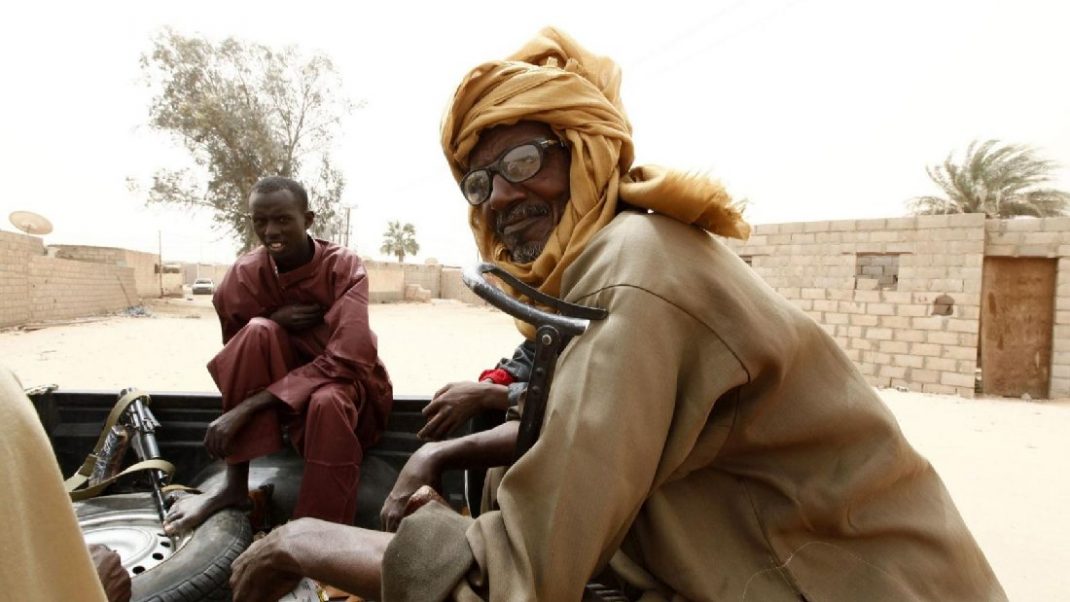By Wolfram Lacher
 Recent advances by Khalifa Haftar’s “Libyan Arab Armed Forces” in southern Libya are changing power relations in Libya in ways that undermine the UN’s ongoing attempts at brokering a political solution.
Recent advances by Khalifa Haftar’s “Libyan Arab Armed Forces” in southern Libya are changing power relations in Libya in ways that undermine the UN’s ongoing attempts at brokering a political solution.
PART ONE
Haftar’s increasing influence implies he will be less open to concessions, while key forces in western Libya now perceive him as an existential threat.
The Tripoli-based Government of National Accord (GNA), which has, to date, remained ambivalent towards Haftar despite his open opposition towards it, will come under increasing pressure from both adversaries and allies of Haftar to clarify its stance.
The new configuration raises the risk of escalation on multiple fronts. Only the emergence of a stable balance of power can create the conditions for a political settlement.
In January and February 2019, Haftar’s forces entered the southern cities of Sabha and Ubari and took over one of Libya’s biggest oilfields, Sharara.
They received widespread popular support and encountered no meaningful resistance. Local armed groups either defected to Haftar or lay low.
Haftar’s stunning success in the south was enabled first and foremost by the region’s long neglect at the hands of the Tripoli-based GNA.
Amid pervasive insecurity and a widespread shutdown of public services, residents eagerly welcomed Haftar’s vow to re-establish order.
Haftar’s moves provoked a scramble by the GNA to appoint a commander for the southern military region and deploy forces from the north to protect Sharara.
But these belated, rash steps ultimately backfired, since they threatened to provoke a political rift in the south just as Haftar’s forces were promising to bring long-awaited stability.
Haftar’s takeover of the heartland of the Fezzan region represents the first real change in the balance of power since his June 2017 expansion into the Jufra region, in central Libya.
Thereafter, a fragile status quo had prevailed in which Haftar appeared unable to advance, while the GNA was hamstrung by rivalries between the – mostly western Libyan – factions associated with it.
During this period, many ambivalent or informal relations bridged Libya’s formal political division between two rival governments, each with its respective central bank and army leadership.
Haftar allowed oil exports to be shipped from eastern ports under his control even though the revenues would be accrued to the Tripoli central bank.
The GNA paid out salaries to many employees of the eastern government, including to soldiers of Haftar’s forces. All the while, international efforts to negotiate a unified executive structure that would include Haftar remained stuck between Haftar’s maximalist demands and the GNA’s certainty that it alone enjoyed international recognition.
Haftar’s expansion in the south has shattered that status quo. He can now claim control over the overwhelming bulk of Libyan oil production and most territory outside Tripolitania.
Local and international actors are reassessing his chances of taking power in Tripoli. At the same time, the new configuration all but upends the long-faltering, UN-led political process.
Previously, a key obstacle to any political deal had been Haftar’s refusal to submit to civilian authority, and he is now even less likely to make concessions, given the prospect of further military advances on the back of the current momentum.
Western Libyan forces that see the prospect of Haftar seizing power as an existential threat will now be even more wary of his integration into a unified government.
After all, this would allow Haftar greater access to state resources with which to further expand his military might; in the current situation, no written agreement can credibly limit Haftar’s power. In sum, the focus will now be on military developments rather than negotiations.
Despite Haftar’s successes, the south remains a highly contested region. Haftar’s authority is still shaky in the southern areas he has taken over. He has sent only limited forces south and has primarily relied on the cooperation or venality of local armed groups.
Southern communities are heavily armed. Haftar will therefore have to tread more carefully in persecuting political opponents in the south than he has done in the east.
The single biggest obstacle to Haftar’s establishment of full control over southern Libya emanates from parts of the Tubu ethnic group. In a gesture of goodwill, Tubu armed groups had handed over their positions in Sabha to Haftar’s forces before withdrawing south.
But pro-Haftar media outlets then portrayed this as “the army” having “captured” these locations. Moreover, to take control of Sabha, Haftar’s forces relied on armed groups recruited from the Awlad Suleiman tribe, which had been fighting several bloody wars with Tubu armed groups in the city since 2012.
Tubu leaders were also wary of the narrative accompanying Haftar’s operations in the south, which emphasised the aim of fighting “Chadian gangs”.
Although Chadian and Sudanese combatants have indeed become a major source of insecurity in the south over the past years, “Chadian gangs” had already been serving as code language for Tubu fighters – both Libyan and Chadian – in the Sabha conflicts since 2012.
Clearly, this choice of language was not innocent, given that Haftar has himself been Libya’s single largest employer of Chadian and Sudanese fighters.
Haftar’s strategy for taking over Sabha therefore alienated even many Tubu who had previously been supportive or ambivalent towards him. Tubu forces have, to date, offered tenacious resistance to the attempts of Haftar’s troops at moving south to Murzuq.
It currently remains unclear whether Haftar can exploit divisions among the Tubu to overcome such opposition. If he gains the support of powerful Tubu commanders, his opponents and associated Chadian combatants may be forced to seek a way out, with possible repercussions for neighbouring Chad and Niger.
If, on the contrary, the current rift cements along ethnic lines, this would increase the intensity of the conflict and block Haftar’s moves towards the southern borders.
Haftar’s opponents in western Libya could support Tubu resistance; Misratan commanders, for example, are discussing a move into the Jufra region in central Libya to cut off Haftar’s supply lines to the south.
A move on Jufra, in turn, would carry risks of a broader escalation.
***
Dr Wolfram Lacher is a Senior Associate in the Middle East and Africa Division at SWP.
_____________
Source: The German Institute for International and Security Affairs





